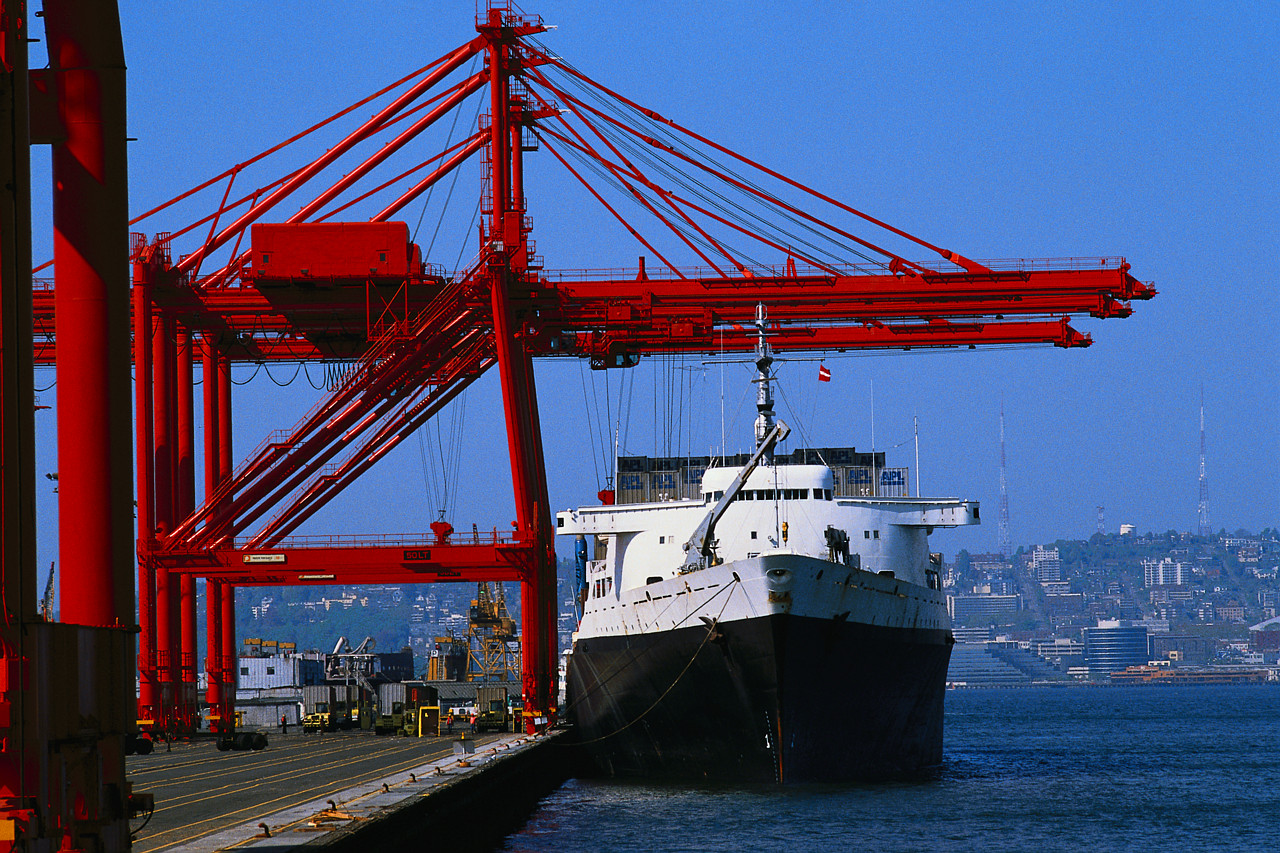For decades, the ports of Seattle and Tacoma have been rivals, competing for customers among the world’s biggest shipping companies. In the past couple of years, that competition got even fiercer as consolidation among shipping companies translated into less clients to fight over.
This morning, in successive votes at Auburn City Hall, both ports unanimously agreed to form an alliance when it comes to their shipping operations. As Port of Seattle vice-president Bill Bryant explained to Seattle Weekly after the votes, the move was essentially prompted by each port’s realization that its Washington state rival wasn’t the enemy. Canada was.
To be specific, the port of British Columbia stood a good chance of becoming one of two West Coast ports of choice, along with the port of Los Angeles and Long Beach, for shipping companies that no longer want to shuttle between a myriad of ports. Such hopping around is awkward these days because the companies have started using much larger ships than in years past, according to Bryant, who has been working on the alliance since becoming a commissioner in 2008.
British Columbia has three terminals that can accomadate the massive new ships, Bryant says. Seattle and Tacoma have two–after joining forces.
What’s more, our neighbor to the north has access to a tranposrtation system that allows cargo to be transported with ease across Canada and into the U.S. Canada has been pouring millions of dollars into road and rail projects with “a coordinated strategy” to make that country “the gateway to the American Midwest and Asia,” he says.
And the U.S.? Herein lies part of the problem, according to Bryant. In this state, at least, transportation projects are languishing as a result of the legislature’s repeated inability to pass a funding package. The commissioner points to State Routes 509 and 167, both only partially completed, stopping short of warehouse and rail districts that cargo would run through.
So one thing the new alliance means, presuming it is approved by the Federal Martime Commission, is that both ports will jointly lobby the legislature and the governor to finally pass a transportation package. “Now we will be speaking with one voice,” Bryant says.
Whether they will have success is another matter. Transportation has been a rancorous, partisan subject, and before getting to it, the legislature has to deal with satisfying a state Supreme Court order to ramp up education funding.
But having the ports breathing down legislators’ necks might help, particularly since the two facilities together add up to what Bryant says is the third biggest port operation in the U.S.








